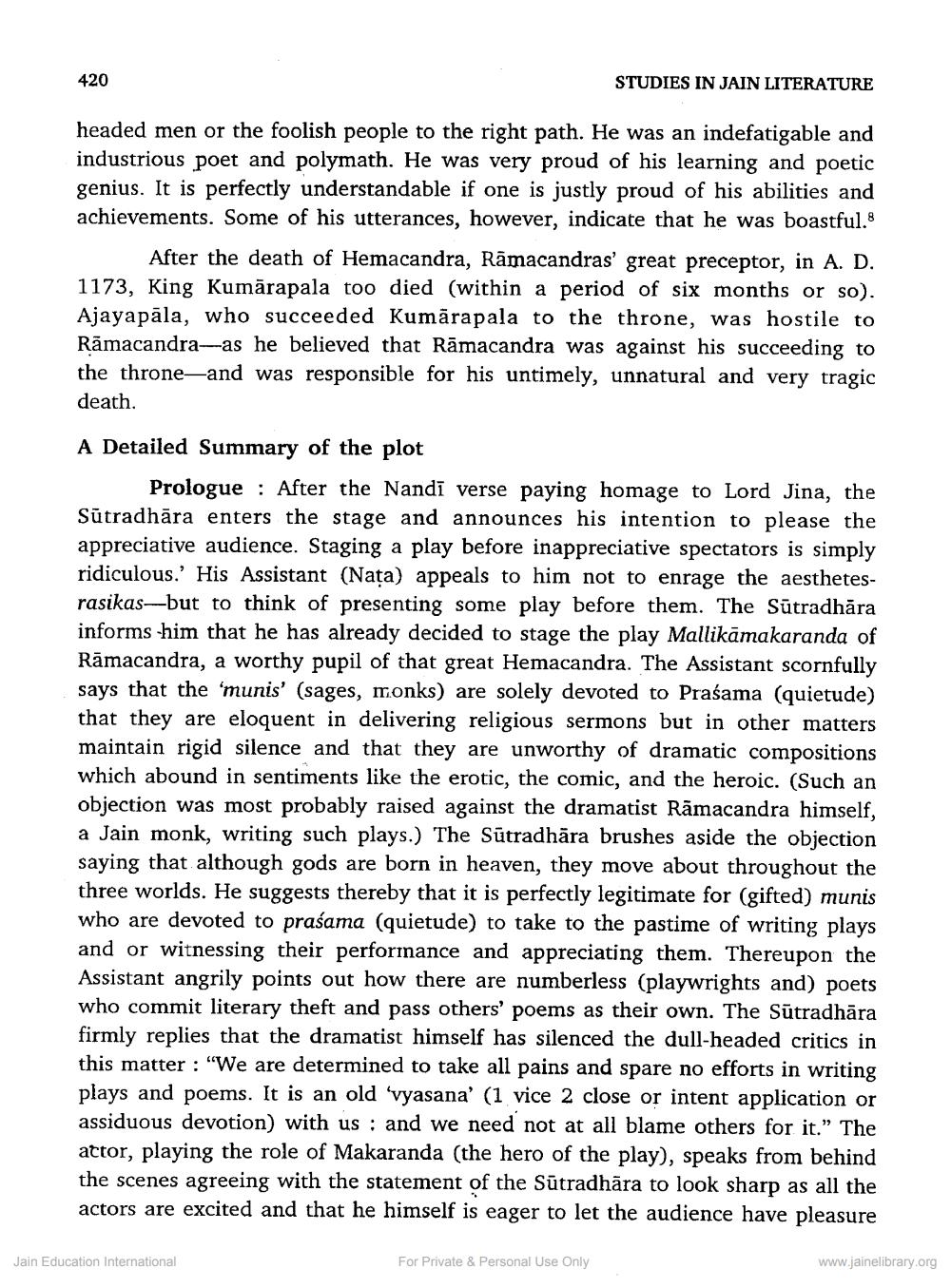________________ 420 STUDIES IN JAIN LITERATURE headed men or the foolish people to the right path. He was an indefatigable and industrious poet and polymath. He was very proud of his learning and poetic genius. It is perfectly understandable if one is justly proud of his abilities and achievements. Some of his utterances, however, indicate that he was boastful.8 After the death of Hemacandra, Ramacandras' great preceptor, in A. D. 1173, King Kumarapala too died (within a period of six months or so). Ajayapala, who succeeded Kumarapala to the throne, was hostile to Ramacandra-as he believed that Ramacandra was against his succeeding to the throne--and was responsible for his untimely, unnatural and very tragic death. A Detailed Summary of the plot Prologue : After the Nandi verse paying homage to Lord Jina, the Sutradhara enters the stage and announces his intention to please the appreciative audience. Staging a play before inappreciative spectators is simply ridiculous.' His Assistant (Nata) appeals to him not to enrage the aesthetesrasikas--but to think of presenting some play before them. The Sutradhara informs -him that he has already decided to stage the play Mallikamakaranda of Ramacandra, a worthy pupil of that great Hemacandra. The Assistant scornfully says that the 'munis' (sages, monks) are solely devoted to Prasama (quietude) that they are eloquent in delivering religious sermons but in other matters maintain rigid silence and that they are unworthy of dramatic compositions which abound in sentiments like the erotic, the comic, and the heroic. (Such an objection was most probably raised against the dramatist Ramacandra himself, a Jain monk, writing such plays.) The Sutradhara brushes aside the objection saying that although gods are born in heaven, they move about throughout the three worlds. He suggests thereby that it is perfectly legitimate for (gifted) munis who are devoted to prasama (quietude) to take to the pastime of writing plays and or witnessing their performance and appreciating them. Thereupon the Assistant angrily points out how there are numberless (playwrights and) poets who commit literary theft and pass others' poems as their own. The Sutradhara firmly replies that the dramatist himself has silenced the dull-headed critics in this matter : "We are determined to take all pains and spare no efforts in writing plays and poems. It is an old 'vyasana' (1 vice 2 close or intent application or assiduous devotion) with us : and we need not at all blame others for it." The attor, playing the role of Makaranda (the hero of the play), speaks from behind the scenes agreeing with the statement of the Sutradhara to look sharp as all the actors are excited and that he himself is eager to let the audience have pleasure Jain Education International For Private & Personal Use Only www.jainelibrary.org




